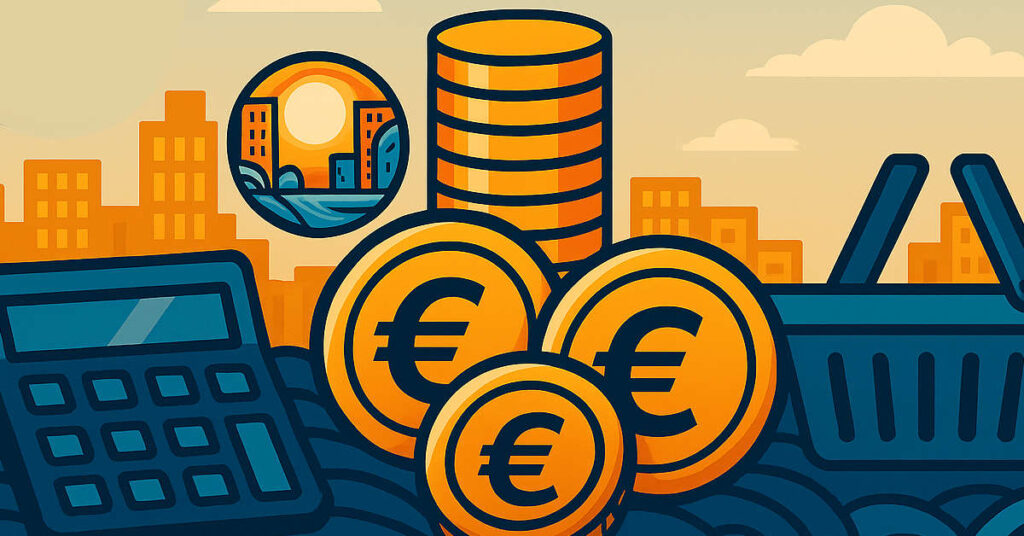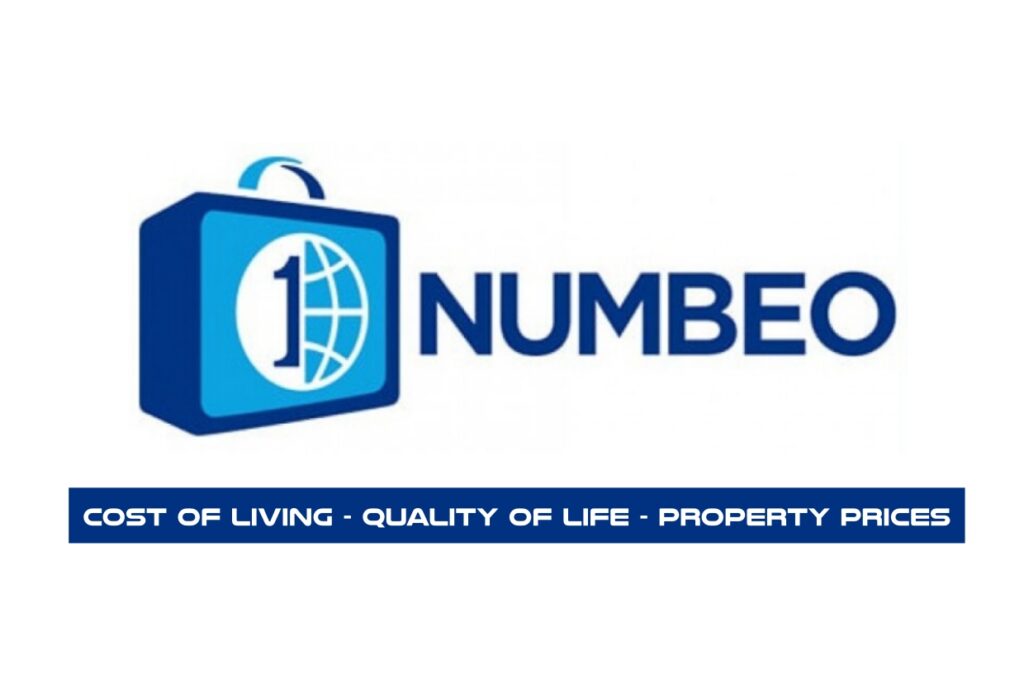Barcelona, the vibrant capital of Catalonia, is a dream destination for many, with its stunning architecture, rich culture, and Mediterranean charm. But how much does it cost to live in this bustling city? Based on recent data from Numbeo, this blog post breaks down the cost of living in Barcelona as of June 2025, covering essentials like housing, food, transportation, and more. Whether you’re planning to relocate, study, or retire here, this guide will help you budget effectively.
Overview of Living Costs in Barcelona
Barcelona is moderately expensive compared to other Spanish cities but remains more affordable than many major European capitals like London or Amsterdam. For a single person, the estimated monthly cost of living (including rent) is around €2,077, while a family of four can expect to spend approximately €4,905 per month. These figures assume a comfortable lifestyle in the city center, but costs can vary depending on your neighborhood and spending habits.
Housing: The Biggest Expense
Housing is the most significant expense for residents in Barcelona. Rental prices have risen in recent years, with a one-bedroom apartment in the city center averaging €1,260 per month. Outside the city center, you can find more affordable options, with similar apartments costing around €900–€1,000. For those looking to buy, the average price per square meter is approximately €3,995, though pricier areas like Sarrià-Sant Gervasi and Eixample can reach €5,449 and €4,987 per square meter, respectively.
For a retiree with a budget of €1,200–€1,500 for rent, neighborhoods like Nou Barris, Sant Andreu, or Horta-Guinardó offer more affordable options, often under €1,000 for a small apartment. However, moving into an apartment can be costly upfront, requiring a deposit (2–3 months’ rent), agency fees (€1,500–€2,000), and the first month’s rent, totaling around €5,800 for a €1,350 apartment.
Tips for Renting:
- Check platforms like Idealista for listings.
- Be cautious of scams, as up to 20% of rental listings may be fraudulent.
- Non-Spanish speakers may face challenges, so consider hiring a local agent or learning basic Spanish to navigate the process.
Food and Groceries
Food in Barcelona is relatively affordable, thanks to Spain’s robust local produce. A single person’s monthly grocery bill typically ranges from €250 to €300. Common grocery items include:
- Milk (1 liter): €1.03
- Bread (500g loaf): €1.50
- Eggs (12): €2.75
- Chicken breast (1kg): €7.80
- Apples (1kg): €2.10
Dining out is also reasonable if you stick to local spots. A meal at an inexpensive restaurant costs around €15, while a three-course meal for two at a mid-range restaurant averages €60. For budget-conscious diners, tapas (small plates) cost €10–€15, and the “menu del día” (set lunch menu) offers great value at €12–€20.
Transportation
Barcelona’s public transportation system is efficient and affordable, with a monthly pass (T-usual, 2 zones) costing around €29. This covers the metro, buses, trams, and FGC trains, making car ownership unnecessary for most residents. For students under 30, the T-Jove pass offers unlimited travel for three months at €40. Taxis and bike rentals are also available, with the Aerobus to the airport costing €5.90 one way.
Utilities and Other Expenses
Utilities for a small apartment (electricity, gas, water, internet) average €95 per month for a single person. Private health insurance, if needed, ranges from €46 to €92 monthly, while public healthcare is free for residents with a valid permit. Leisure activities, such as gym memberships (€40/month) or cinema tickets (€9), add €200–€300 to monthly expenses, depending on your lifestyle.
Salaries and Affordability
The median after-tax salary in Barcelona is around €2,025 per month, which covers living expenses for a single person for about 1.1 months. For a family of four with two children in international schools, a higher income is needed—likely €4,000–€5,000 net per month to live comfortably. Compared to other cities, Barcelona is 24.7% cheaper than Amsterdam and 33.6% cheaper than London, but it’s more expensive than Valencia or Seville.
Quality of Life for Families and Retirees
Barcelona offers a high quality of life, especially for families and retirees. The city is safe, cosmopolitan, and boasts a Mediterranean climate. Public education is well-regarded, though international schools can be costly. For retirees with a monthly income of $3,900 (€3,600 after taxes), covering rent (€1,200–€1,500) and living expenses (€785 without rent) is feasible, leaving room for leisure and Spanish classes.
Neighborhood Recommendations for Retirees:
- Gràcia: Vibrant, community-focused, with rents slightly below the city center average.
- El Born: Historic, with lively nightlife but quieter residential pockets.
- Nou Barris: Budget-friendly, with rents under €1,000.
Tips for Saving Money
- Shop Local: Visit markets like La Boqueria for fresh, affordable produce.
- Use Public Transport: Invest in a T-usual or T-Jove pass for savings.
- Eat Like a Local: Opt for tapas or “menu del día” instead of touristy restaurants.
- Explore Free Attractions: Enjoy the Gothic Quarter, Park Güell, and other free cultural sites.
Final Thoughts
Barcelona offers a balance of affordability and quality of life, making it an attractive destination for expats, students, and retirees. While housing costs can be high, careful budgeting and choosing the right neighborhood can keep expenses manageable. Use tools like Numbeo’s Cost of Living Estimator or Idealista to plan your move and ensure a smooth transition to life in this beautiful city.
Source: Numbeo, Cost of Living in Barcelona, last updated June 2025.



